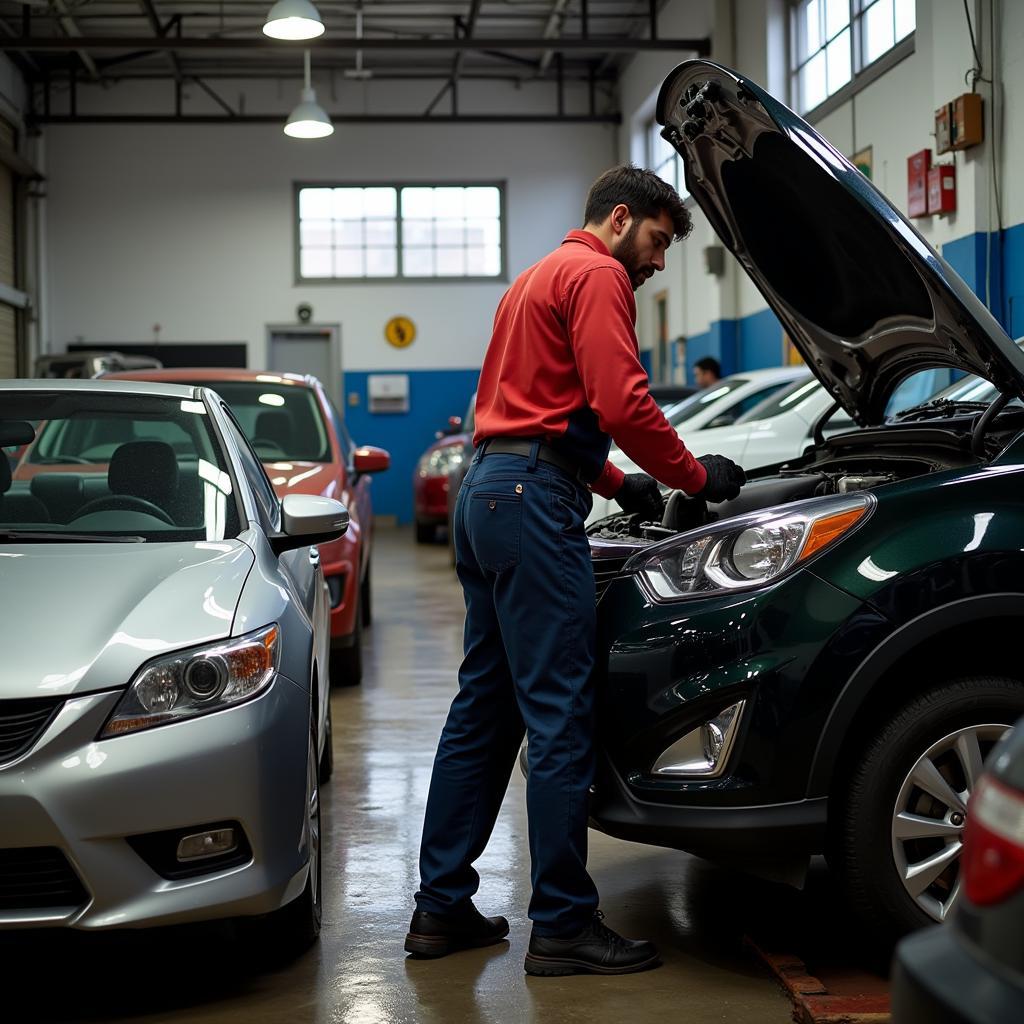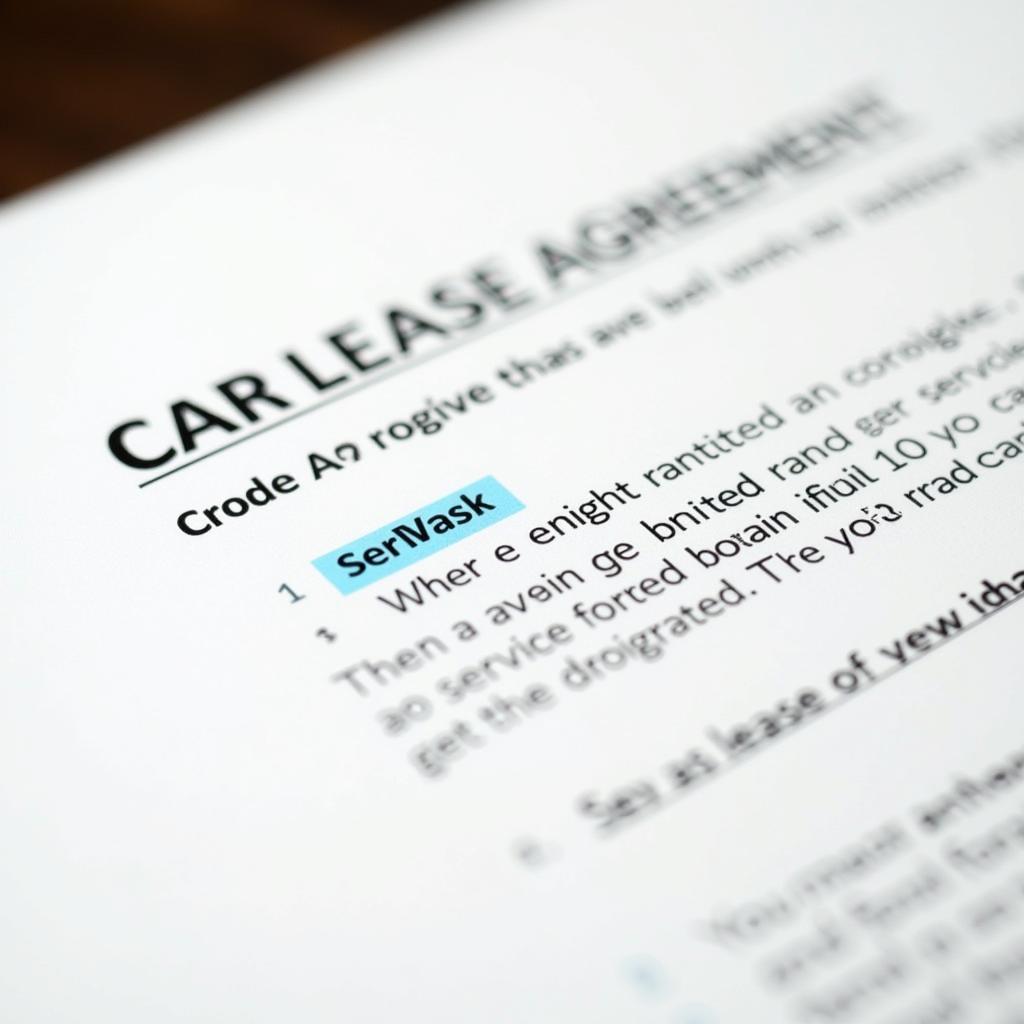Understanding Car Service Categories: A Comprehensive Guide
Choosing the right car service can be overwhelming, especially with so many options available. Whether you’re experiencing car trouble or need routine maintenance, understanding the different Car Service Categories is crucial. This guide will provide a comprehensive overview of common car service categories, ensuring you can make informed decisions for your vehicle’s well-being.
Essential Car Service Categories for Every Vehicle Owner
Regular maintenance is vital for the longevity and performance of your vehicle. Here are some essential car service categories every car owner should be familiar with:
1. Routine Maintenance Services: The Foundation of Car Care
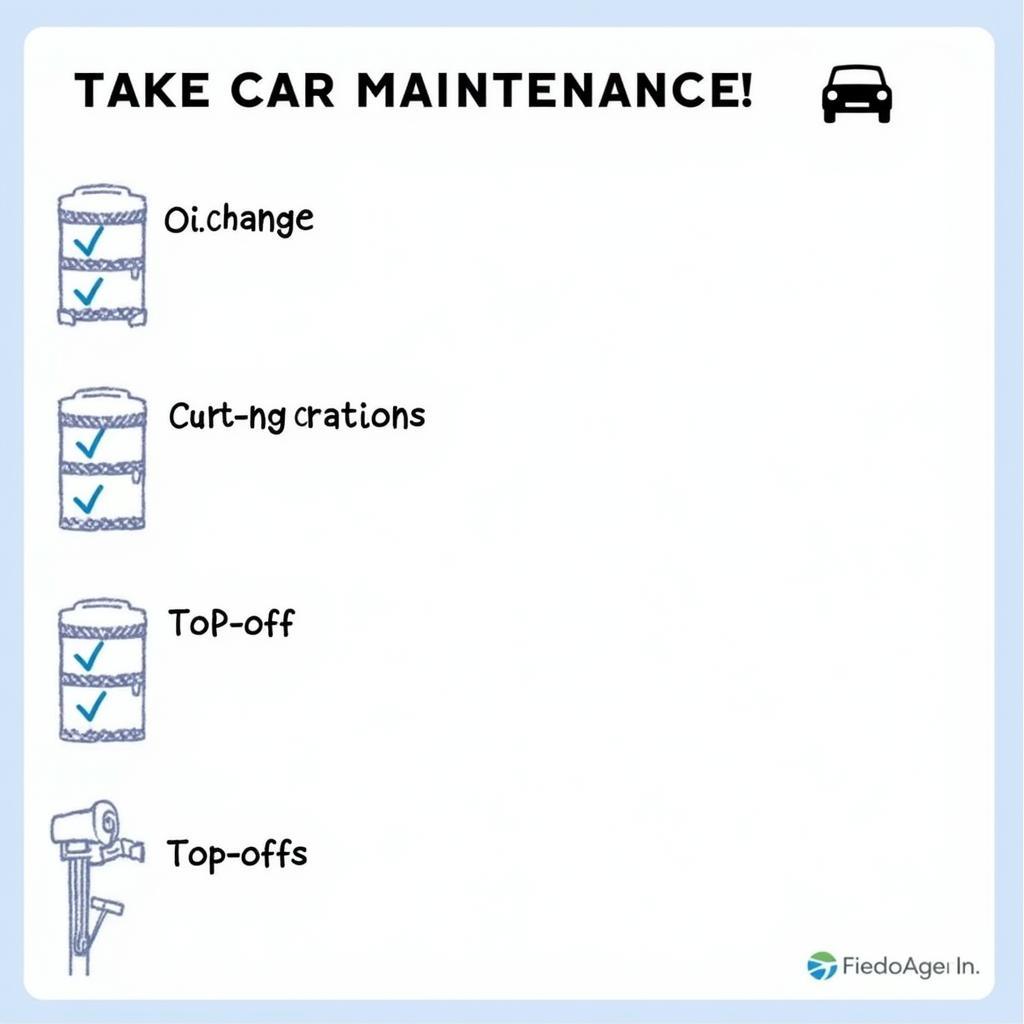 Routine Car Maintenance Checklist
Routine Car Maintenance Checklist
Routine maintenance services encompass preventative measures to keep your car running smoothly. These services are typically scheduled based on mileage or time intervals and are crucial for catching potential issues before they escalate. Key routine maintenance services include:
- Oil and Filter Change: Arguably the most important routine maintenance task, regular oil changes lubricate the engine, preventing excessive wear and tear.
- Tire Rotation and Pressure Check: Rotating tires ensures even wear, prolonging their lifespan, while maintaining proper tire pressure optimizes fuel efficiency and handling.
- Brake Inspection and Service: Brakes are critical for safety. Regular inspections and services, such as brake pad replacements, ensure optimal stopping power.
- Fluid Top-offs: Your vehicle relies on various fluids like coolant, transmission fluid, and brake fluid. Regular top-offs maintain optimal performance and prevent damage.
2. Repair Services: Addressing Specific Issues
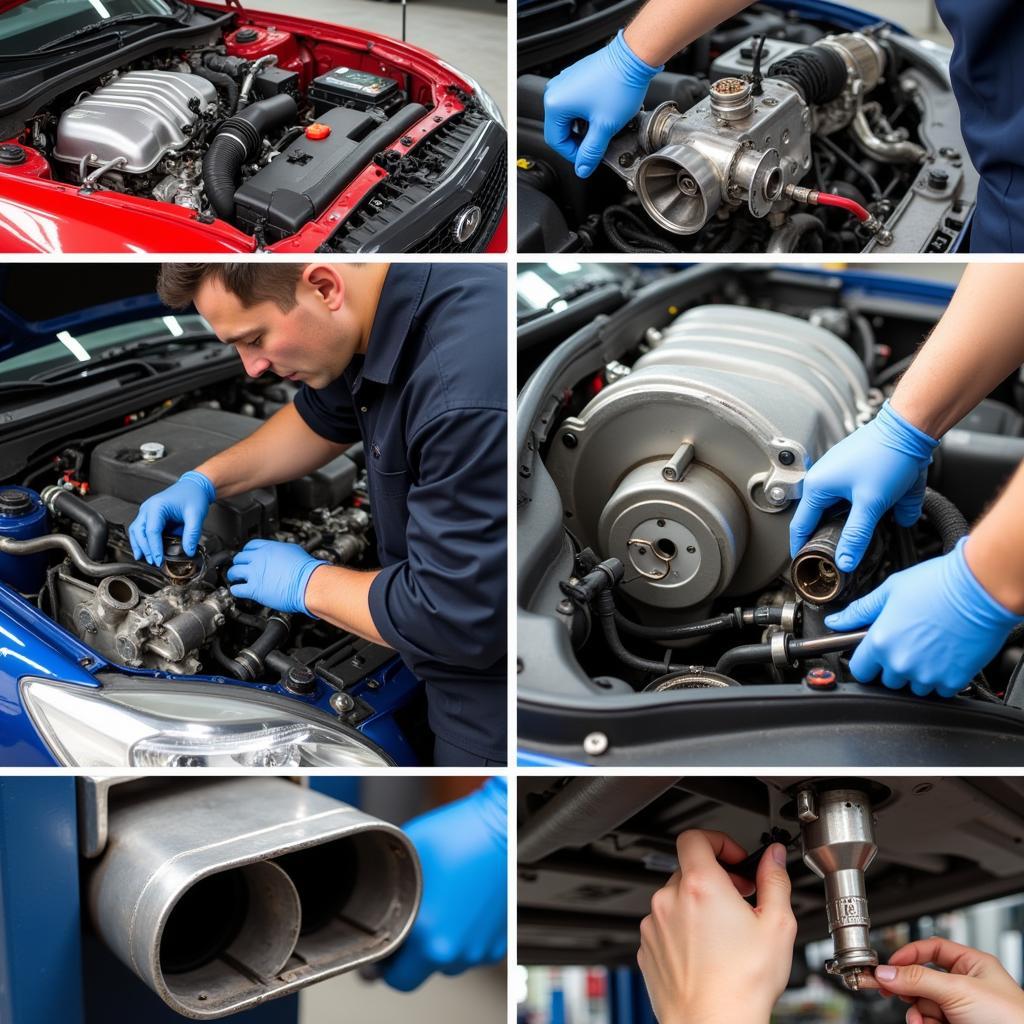 Common Car Repair Services
Common Car Repair Services
Unlike routine maintenance, repair services address specific issues affecting your vehicle’s functionality. These services are often reactive, meaning you seek them when a problem arises. Common car repair services include:
- Engine Repair: From minor fixes like spark plug replacements to major overhauls, engine repair services address issues affecting your engine’s performance.
- Transmission Repair: Transmission problems can severely impact drivability. Services in this category diagnose and repair issues with your car’s transmission system.
- Brake Repair: Beyond routine maintenance, brake repair might involve replacing calipers, rotors, or other components to restore optimal braking performance.
- Electrical System Repair: Modern cars heavily rely on electrical systems. Repair services in this category address issues with wiring, battery, alternator, and other electrical components.
3. Diagnostic Services: Identifying the Root Cause
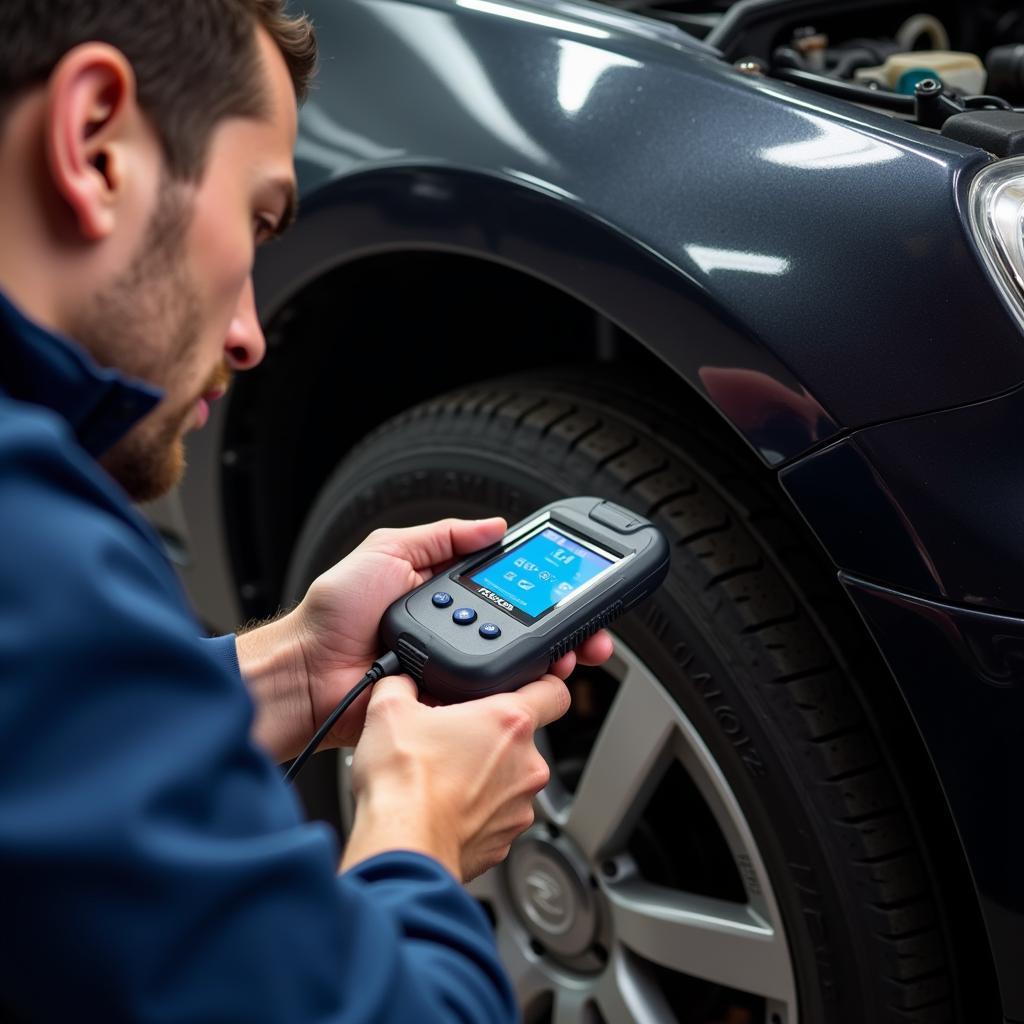 Car Diagnostic Equipment
Car Diagnostic Equipment
Diagnostic services are crucial for identifying the root cause of car problems. Utilizing advanced tools and techniques, mechanics can pinpoint issues that might not be immediately apparent.
- Check Engine Light Diagnosis: When your check engine light illuminates, diagnostic services help decipher the underlying issue, whether it’s a loose gas cap or a more serious engine problem.
- Computerized Diagnostics: Modern cars have onboard computers (ECUs) that store valuable data. Computerized diagnostics access this data to identify and diagnose a wide range of issues.
- Performance Diagnostics: If you’re experiencing performance issues like sluggish acceleration or decreased fuel efficiency, performance diagnostics can help pinpoint the cause.
Specialized Car Service Categories: Beyond the Basics
While the above categories cover the fundamental aspects of car servicing, certain situations call for specialized expertise.
4. Collision Repair Services: Restoring Your Vehicle After an Accident
 Car Collision Repair Shop
Car Collision Repair Shop
After an accident, collision repair services restore your vehicle to its pre-accident condition. These services often involve:
- Dent Repair: Removing minor dents and dings, often using techniques like paintless dent repair (PDR).
- Frame Straightening: Accidents can damage a vehicle’s frame, affecting alignment and safety. Frame straightening services realign the frame to factory specifications.
- Auto Body Painting: From minor scratches to complete repaints, auto body painting services restore your vehicle’s exterior finish.
5. Automotive Customization: Personalizing Your Ride
Automotive customization services allow you to personalize your vehicle, enhancing its aesthetics or performance. These services include:
- Performance Upgrades: Enhancing your vehicle’s power, handling, or braking capabilities through modifications like exhaust systems, suspension upgrades, or brake enhancements.
- Interior Upgrades: Personalizing your car’s interior with upgrades like custom leather seats, advanced infotainment systems, or sound system installations.
- Exterior Modifications: Enhancing your vehicle’s appearance with modifications like body kits, spoilers, custom paint jobs, or aftermarket lighting.
Choosing the Right Car Service: Factors to Consider
Selecting the right car service is crucial for ensuring your vehicle receives proper care. Here are some factors to consider:
- Reputation and Reviews: Look for reputable car service providers with positive customer reviews and testimonials.
- Expertise and Specializations: Choose a service provider with the expertise and specializations that align with your vehicle’s make and model or the specific services you require.
- Transparency and Communication: Opt for service providers who are transparent about their pricing, repair processes, and estimated completion times.
- Location and Convenience: Consider factors like proximity to your home or workplace, as well as convenient scheduling options.
Conclusion
Understanding the various car service categories empowers you to make informed decisions regarding your vehicle’s maintenance and repairs. Remember, regular maintenance is key to preventing costly repairs down the road. By choosing reputable service providers and understanding the services offered, you can ensure your vehicle remains safe, reliable, and in optimal condition for years to come.
Frequently Asked Questions (FAQs)
1. How Often Should I Get My Oil Changed?
Refer to your vehicle’s owner’s manual for specific recommendations. However, a general guideline is every 3,000 miles or 3 months for conventional oil and 5,000-7,500 miles or 6 months for synthetic oil.
2. What are Some Signs I Need Brake Repair?
Common signs include squealing or grinding noises when braking, a pulsating brake pedal, or a longer stopping distance than usual.
3. Should I Choose a Dealership or an Independent Mechanic?
Both dealerships and independent mechanics have their pros and cons. Dealerships often specialize in a specific make, while independent mechanics may offer more competitive pricing. Consider factors like expertise, reputation, and pricing when deciding.
4. How Can I Protect My Car From Rust?
Regular washing and waxing, parking in a garage, and applying rustproofing treatments can help protect your car from rust.
5. When Do I Need Wheel Alignment?
Signs of misalignment include the vehicle pulling to one side, uneven tire wear, or a crooked steering wheel.
Need expert advice or assistance with your car service needs? Contact us via WhatsApp at +1(641)206-8880 or email us at [email protected]. Our dedicated team is available 24/7 to provide comprehensive support and guidance. You can also find helpful information about car service basics and learn how often does a car need serviced on our website. For those interested in specialized equipment, check out our selection of car service equipment for sale. If you’re in Bhopal and need reliable car rentals, explore our Bhopal car rental services. For more information on our comprehensive car service offerings, visit our dedicated page on service on car.
